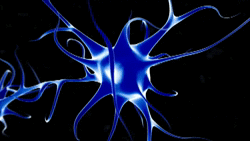You may not need to completely reinvent your life to quit drinking, but making a few changes in your surroundings to help avoid alcohol triggers can make a big difference. It’s possible to develop a better relationship with alcohol and make more mindful, informed choices about drinking without total sobriety. Don’t bring up the subject when they’re already drinking or hungover. If they’re intoxicated, they might be more likely to misunderstand you, lash out, or forget the details of the conversations. Wait until you’re both able to have a clear, unrushed, and uninterrupted conversation.
Setting Healthy Boundaries in Relationships
- The physical reactions of binge drinking can then lead to other incidents like driving accidents, physical violence, and problems with friends, family, and colleagues.
- If someone is trying to coerce you to have another beer, be polite but firm in saying no.
- Your life doesn’t have to stop while you make progress.
- Learn more about the health effects of drinking alcohol here.
You have a hard time cutting yourself off once you start drinking. Perhaps you frequently get caught up in the feeling of euphoria that comes with being intoxicated. You feel compelled to keep drinking to maintain that high.
Limit Number of Drinks Per Week
Beyond that, take time to examine the feelings or routines that drive you to drink in the first place. Mindfulness is a good place to start for this, but you can try any activity that helps you reflect and relax. And don’t be afraid to reach out to friends and get some fresh air if being stuck at home feels triggering at times. Millions of readers rely on HelpGuide.org for free, evidence-based resources to understand and navigate mental health challenges.
Alcohol use can have life-long effects on developing brains and bodies. Teens who drink are also more likely to struggle with school, use other risky substances, or experience alcohol poisoning. Don’t take on a how to get someone fired judgmental tone or try to shame them. Simply explain why you’re concerned about their binge drinking.
However, alcohol is a depressant, so it will ultimately make you feel even worse. The National Institute on Alcohol Abuse and Alcoholism defines binge drinking as a pattern of drinking alcohol, typically within a 2-hour period, which brings a person’s BAC to 0.08% or higher. A person’s BAC is the percentage of alcohol in their blood, and in the United States, a BAC of 0.08% means the person is legally intoxicated. If you find yourself binge drinking regularly or are having a hard time managing your drinking, help is available to you. Alcohol addiction treatment offers multiple treatment options and treatment settings that are based on your unique circumstances and recovery goals.
Find healthier ways to manage social anxiety
It can also be helpful to set goals with your therapist, and create a plan for achieving your goals. Ria Health is a 100 percent online alcohol treatment program that connects you with medical professionals, anti-craving prescriptions, peer support groups, and more. Best of all, you don’t need to identify as an alcoholic to get started. This program is meant for anyone who wants to change their relationship with alcohol, whether that means cutting back or quitting altogether. You might find it helpful to choose an accountability partner who has also struggled with binge drinking. This can be one of your in-person friends, or even someone you met through an online support group.
No matter how you choose to support what foods have alcohol in them your loved one’s efforts to stop binge drinking, remember you’re not their therapist. You also can’t be expected to constantly monitor their decisions. Your role is simply to remind them of commitments they made and offer small nudges in the right direction.
Avoid storing beer, liquor, and wine in your kitchen. It might seem convenient when you have company over, but it also makes it easier to reach for multiple drinks while you’re alone. If you do end up storing alcohol at home, keep in the back of the fridge or in a high cabinet—somewhere out of immediate sight. Whether you decide to set a hard limit or not, make a habit of following up every alcoholic beverage with a non-alcoholic one. This can help you slow down and better pace yourself. Because excessive alcohol use impairs judgment and inhibitions, it can lead to risky behavior that can come with some serious consequences.
How Common Is Binge Drinking?
Our next tip is an example of an achievable and rhinophyma and alcoholism attainable goal you can set to break free of binge drinking patterns. Binge drinking can lead to several short-term and long-term effects. Someone who binge drinks may experience impaired judgment, nausea, vomiting, and even unconsciousness. Over time, a binge drinker is at a higher risk for severe health problems such as liver disease, pancreatitis, and certain types of cancers.
Certain personality traits can make you more prone to engage in binge drinking. If you’re a highly impulsive person, you may be more likely to reach for another drink without stopping to think about the consequences. If you’re the type of person who likes to seek out novel sensations and situations, you might also be more willing to engage in risky drinking habits. If you have trouble stopping drinking once you start, these tips can help you build a healthier relationship with alcohol.











